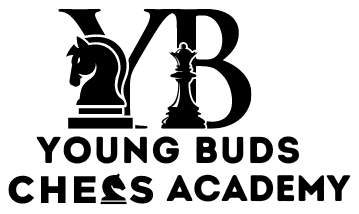Discipline is a cornerstone of success, and chess is one of the most engaging ways to cultivate it in children. Far from being a dry or tedious task, chess turns discipline into a thrilling challenge, teaching kids to practice regularly, plan strategically, and stay committed to their goals. Here’s how chess fosters discipline and why it’s an ideal activity for kids to develop this essential life skill.
The Discipline of Practice
To improve at chess, kids need to practice consistently. Whether it’s playing games, solving puzzles, or studying openings, progress requires effort over time. This mirrors the discipline needed for academic or personal growth, where steady work leads to results.
Chess makes practice fun because kids see tangible improvements. Mastering a new checkmate pattern or winning a game with a learned strategy feels rewarding. This motivates them to stick with it, teaching them the value of consistent effort. Parents often find that chess-playing kids apply this discipline to homework or other hobbies.
Planning and Goal Setting
Chess teaches kids to set goals, both short and long-term. In a game, they might aim to control the center or trap an opponent’s piece. Over time, they set bigger goals, like achieving a tournament rating or learning a new complex opening. This process requires planning and commitment, skills that translate to real-life.
For example, a child preparing for a chess tournament learns to manage their time, balancing practice with schoolwork. They break down their goal into steps, like studying tactics daily or analyzing past games— This goal-oriented mindset helps kids stay disciplined in academics, sports, or other pursuits.
Patience Under Pressure
Chess games can be tense and, requiring players to think carefully even when time constraints loom. Kids learn to stay calm, assess their options, and avoid impulsive moves. This patience is a form of discipline that’s critical for decision-making in high-stakes situations.
In life, this translates to staying composed during exams, resisting distractions on social media, or waiting for long-term rewards. Chess teaches kids that disciplined thinking leads to better outcomes, a lesson that helps them make thoughtful choices.
Learning from Mistakes
Discipline isn’t just about perfection—it’s about learning from errors. In chess, every mistake is a chance to improve. Kids analyze lost games to understand what went wrong and how to avoid similar pitfalls. This reflective practice builds self-discipline, as they commit to correcting their approach.
This mindset is invaluable in school, where kids learn to revise essays, improve math skills, or refine their science projects. They understand that discipline means not giving up but working through challenges to get better.
Balancing Fun and Effort
Chess strikes a unique balance between enjoyment and hard work. Kids are drawn to the game’s excitement but soon realize that improving requires effort. This teaches them that discipline doesn’t have to be boring—it can be rewarding and fun.
For parents, this is a win-win. Kids who enjoy chess are more likely to stick with it, developing a habit of disciplined practice that benefits other areas of their life. They learn to prioritize tasks while still making time for play.
Building Time Management Skills
Many chess games are played with time controls, forcing kids to budget their minutes wisely. They learn to balance quick decisions in the opening with deeper thinking in the critical moments. This time management skill is a form of discipline that’s directly applicable to schoolwork.
Kids who play chess often become better at scheduling their day, allocating time for studying, playing, and resting. This helps them meet deadlines, prepare for tests, and maintain a healthy work-life balance.
Encouraging Self-Motivation
Chess is inherently self-driven. While coaches and parents can guide, improvement depends on the child’s own effort. Kids learn to take responsibility for their progress, setting their own goals and working toward them. This self-discipline is a powerful trait for lifelong success.
Parents can nurture this by encouraging their child’s chess journey without pressuring them. Celebrate their dedication to practice or their courage in tournaments, reinforcing the value of self-motivated effort.
Getting Started with Chess
To help your child build discipline through chess, start with small, manageable steps. Introduce them to the game through fun apps like ChessKid or simple board games at home. Encourage them to join a local chess club or participate in online events to build a routine.
Set realistic goals together, like learning one new tactic a week, and praise their commitment. As they grow, they’ll carry the discipline into school, sports, and beyond, thanks to the lessons learned on the chessboard.
Chess is a masterclass in discipline, teaching kids to practice, plan, be patient, and stay motivated. It’s a game that builds habits of mind and character that will serve them well throughout their lives. By introducing chess, parents can help their child develop the discipline they need to thrive in any challenge.
